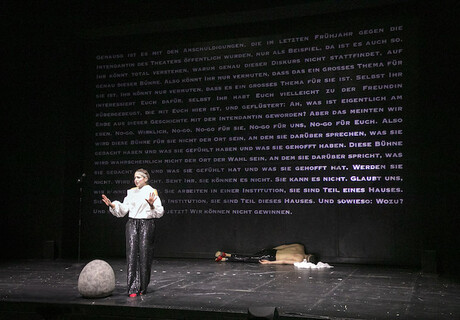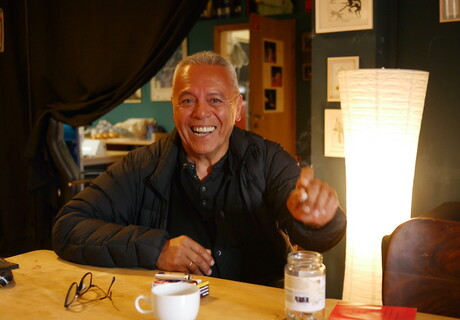Critical Campaigning Manifesto - by Peng! Kollektiv co-founder Jean Peters
Martial art
by Jean Peters
Berlin, March 2018.
0. The Critical Campaigner fights for the rights and voice of the oppressed, the marginalised and the powerless. However, this fight is never pursued at the expense of other marginalised groups, but reflected in its complexity. The Critical Campaigner will uncover and fight any class-based privileges alongside sexist, racist and militarist propaganda, be it explicit or implicit.
1. The Critical Campaigner will, whenever possible, fight all forms of oppressive censorship implemented by statecraft, corporate rule, or any other interest, including personal interest and social norms as represented by colleagues, friends, and other social actors.
2. The Critical Campaigner is aware of the interrelated nature of social emancipation. While institutional politics tend to separate matters neatly into sectors such as "human rights", "ecology", "economic development", "gender equality" etc., the Critical Campaigner does not pit one social movement against the other. Any campaign in the interest of emancipation is necessarily "intersectoral" in its core design.
3. The Critical Campaigner is committed to do her very best to meet ethical standards when communicating and mobilising. She understands that with more leverage comes more responsibility.
4. The Critical Campaigner will always ensure that any group or individual she is fighting for is involved in the campaign from the outset, included at eye-level, and – where feasible – as part of the core team. The Critical Campaigner will avoid any form of instrumentalisation, and, as such, ensures accountability to the group or individual that forms the center of the campaign.
5. The Critical Campaigner will reflect her speaker's position. She will seek to create the space necessary for any individual or group with less access to self-representation, to raise their voice.
6. The Critical Campaigner does not surrender to the awe of consumer-experience and mass reach. Critical political matters require committed forms of struggle. The Critical Campaigner will hence focus on and support those willing to take action. She doesn't consider mass reach as an end in itself.
7. The Critical Campaigner recognises that satire, irony or other more artistic forms of communication are open to interpretation and she will be ready to publicly clarify her political position(s) during or after the campaign.
8. The Critical Campaigner deciphers power relations embodied and reproduced in all forms of communication, be it software, computer networks (or other works of engineering), architecture, written language, the spoken word and its intonations, cinema, sound, dress, body language, as well as the absence of response. She will be vigilant as to not reproduce repressive power patterns in her communication.
9. The Critical Campaigner realises the extent to which political and artistic work is threatened by surveillance. In respect of the right of her allies, colleagues and friends to control their data and identity, she will research and adopt the safest means of communication.
10. The Critical Campaigner applies emotionalisation and simplification only in conjunction with also making diverse and/or comprehensive information available.
11. The Critical Campaigner will never prioritise the survival of her organisation as a cause in itself. While the survival of her organisation might sometimes be important, it is always secondary to the political causes it serves.
Hier geht's zur deutschen Übersetzung des Manifests.
The Critical Campaigning Manifesto is designed to be developed and will be regularly updated on this website.
Wir bieten profunden Theaterjournalismus
Wir sprechen in Interviews und Podcasts mit wichtigen Akteur:innen. Wir begleiten viele Themen meinungsstark, langfristig und ausführlich. Das ist aufwändig und kostenintensiv, aber für uns unverzichtbar. Tragen Sie mit Ihrem Beitrag zur Qualität und Vielseitigkeit von nachtkritik.de bei.
mehr debatten
meldungen >
- 17. April 2024 Autor und Regisseur René Pollesch in Berlin beigesetzt
- 17. April 2024 London: Die Sieger der Olivier Awards 2024
- 17. April 2024 Dresden: Mäzen Bernhard von Loeffelholz verstorben
- 15. April 2024 Würzburg: Intendant Markus Trabusch geht
- 15. April 2024 Französischer Kulturorden für Elfriede Jelinek
- 13. April 2024 Braunschweig: LOT-Theater stellt Betrieb ein
- 13. April 2024 Theater Hagen: Neuer Intendant ernannt
- 12. April 2024 Landesbühnentage 2024 erstmals dezentral






















neueste kommentare >